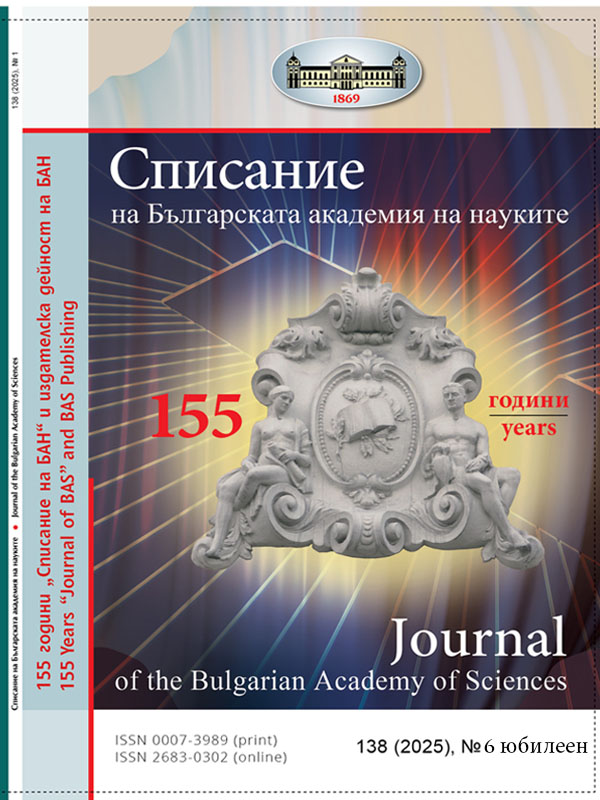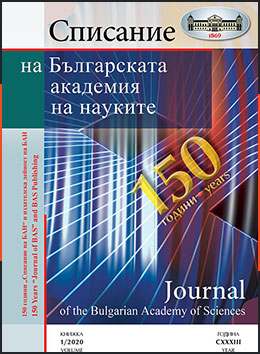Current Issue Published
Journal of the Bulgarian Academy of Sciences
- Year: 2025
- Number: 6th Jubilee Issue
- Language: Български, English
- Download Issue

-
30th Assembly of Section “Literature of the Bulgarian National Revival”, Institute for Literature. “Periodical Journal” – Images of Innovation, Dynamics, Models
Author(s): Nikoleta Patova
-
The Exibition 155 Years “Periodical Journal of the Bulgarian Literary Society”
Author(s): Silviya Naydenova
-
“...Following in the Footsteps of Enlightened Nations...”
Author(s): Nikoleta Patova
-
Vasil Drumev on the “Science of Sciences”
Author(s): Nevena Mihova
-
The “Periodical Journal” and Philological Thought during the Bulgarian Revival
Author(s): Diana Ivanova
-
The Mind – Master or Slave. On the Foundations of Scientific Knowledge in the “Periodical Journal” (1870 – 1871)
Author(s): Nevena Gavazova
-
“Periodical Journal” and the Profiles of Critical Writing
Author(s): Rumyana Damyanova
-
Generations of Critical Selfreflexion
Author(s): Aleksandra Antonova
-
Sofroniy Vrachanski’s Biografy and Autobiografy in the “Periodical Journal” in 1872
Author(s): Nadezhda Alexandrova
-
Petko R. Slaveykov – Contributor to “Periodical Journal” (1882 – 1895)
Author(s): Elena Getova
-
On an Opinion Regarding Education and Upbringing in the “Periodical Journal”
Author(s): Vladimir Ignatov
-
The Administravive Officer Todor Peev – Weaving and Tearing the Threads
Author(s): Maya Gorcheva
-
The “Periodical Journal” and Western European Literature
Author(s): Boyka Ilieva
-
Homer on the Pages of “Periodical Journal”: The Beginnings of the Bulgarian Translational and Critical Reception
Author(s): Andriana Spasova
-
On the Study of Natural Sciences in the Bulgarian National Revival School (Based on the Articles “On Schools” by Nesho Bonchev and “On the Organization of Public Schools” by Yosif Kovachev)
Author(s): Aleksandar Nikolov
-
“Periodical Journal” and the Knowledge of History
Author(s): Nikolay Zhelev
Journal of BAS
ISSN 0007-3989 (print)
ISSN 2683-0302 (on line)
150 Years
"Journal of the BAS"

Sections in the Issue
In the issue you can read articles from the following sections.
